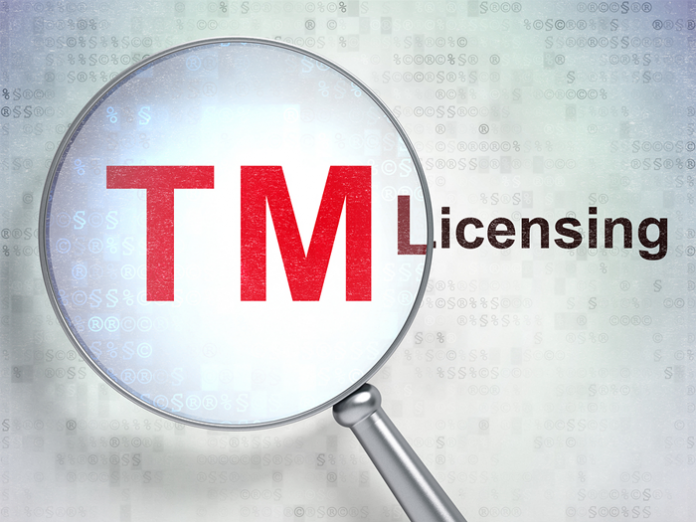This article is written by Swati K, pursuing a Diploma in Intellectual Property, Media and Entertainment Laws from Lawsikho.com. Here she discusses “Process and Benefits of Trademark Licensing in India”.
What is Trademark?
The definition of a Trademark is provided in Sec- 2 (1) (zb) of the Trademarks Act, 1999. According to it, a Trademark is-
- A mark (Sec- 2(m))
- Capable of being represented graphically, and
- Capable of differentiating the goods and services of one person from those of others, and
- Includes shape of goods, their appearance, their packaging and combination of colors.
A trademark has rights in the law according to it being registered or not registered. A trademark is used to refer to both goods and services. For services it also is addressed as a Service Mark.
A Trade Mark shall have distinct characteristics. If a trademark looks similar to any other trademark it can cause confusion in the minds of the consumers or the public. The similarity in a trademark can lead to unfair trade practices.
What is Trademark License?
The term “Licensing of TM” has not been defined in the Trademarks Act, 1999.
A License in general is the permission given to someone to do an act.
Trademark License simply means the permission granted by the owner of the trademark to a third person. Such a license is granted in consideration of a Royalty.
Who can grant a TM License?
The holder/proprietor of the registered Trademark can grant the trademark license. It would be right to mention here that under the Indian Law both registered and unregistered can be transferred. The transfer of a Trade Mark can either be by means of a license or an assignment.
A license to a registered Trade Mark in India can be of two kinds- A simple license agreement which is with respect to permissive use and A Registered User wherein the license agreement is registered with the Registrar of Trade Marks. In this license certain rights accrue to the licensee as per statute.
To whom is the TM License Granted?
It can be granted to any person or a third party whom the trademark holder wishes to exploit or use the trademark.
Why is a TM License Granted?
A trademark license is granted to legally permit a third party to make use of the Registered Trademark. It is a common practice by foreign companies, the tech companies, in particular to provide TM License in other countries so that their trademark can be exploited in those countries.
For e.g. – an owner of a brand can grant a license to another person to use his trademark in the course of trade for both goods and services.
The granting of the TM License is not a sale. Licensing only transfers the right to use the trademark while the ownership of the trademark rests with the proprietor himself. The rights granted are limited rights w.r.t. time and can range from right to uses the trademark, sell the products etc. The TM License can be an exclusive or non – exclusive one.
The statutory provision under Section 48 of the TM Act stipulates that a person other than the registered proprietor of a trademark may be registered as a registered user. Therefore the use of the registered trademark can be permitted by the provisions of this act but for this, the necessary conditions must be fulfilled by both the parties.
What are the Requisites of a TM License Agreement?
- The agreement shall implement quality checks and controls on the goods and services for which it is being granted. This would prevent the reputation of the trademark from being destroyed or maligned. This necessary clause shall be always added in the agreement.
- The territory for which the license is being granted.
- The term of the license.
- Consideration for which it is being granted.
- Termination clause
- Indemnification clause (in case any loss occurs).
Process for Registration of a Trademark License
Section 49 of the Trademarks Act, 1999 defines a Registered User as a person who is for the time being registered under sec- 49.
Here the Registered User is the Licensee.
Section 2(1)(r) of the act defines permitted use of a Trademark. It means the use of a trademark by-
1. by a registered user of the trademark in relation to goods or services
- with which he is connected in the course of trade: and
- in respect of which in the trademark remains registered for the time being -: and
- for which he is registered as a registered user and
- which complies with any conditions or limitation to which
the registration of the registered user is subject: or
2. ii) by a person other than the registered proprietor and registered user in relation to goods or services
- with which he is connected in the course of trade and
- in respect of which the trademark remains registered for the time being: and
- by consent of such registered proprietor in a written
agreement and - which complies with any conditions or limitation to which such user is subject and to which the registration of the trademark is subject”
The registration of a TM license agreement is not mandatory under the law. But registration always comes to the rescue as it forms a record/ evidence in possible future disputes. In the case of Himalaya Drug Co. Pvt. Ltd., Bangalore v. Arya Aushadhi Pharmaceutical Works, Indore, the Court ruled that if a company fails to prove that it is a registered user then the suit is liable to be dismissed. It is therefore always good to register the TM License with the Trade Mark Office. Only a Registered owner/ Proprietor of the Trade Mark is competent to launch proceedings for the trademark infringement as per the Trademarks Act, 1999. If a User is not registered under the act then he cannot maintain the suit under the Act.
Therefore, to register the trademark license
- The agreement shall be in writing;
- The owner of the TM and the proposed user should together apply for registration (sec- 49) to the Registrar of the Trademarks jointly;
- The application is to be made in Form TM-U;
- An affidavit authenticated- by the proprietor of the TM including the details of the license mentioning the following-
- Relationship between the parties
- Duration of the use
- Goods/services for which it is applicable
Shall be provided with the application in Form TM- U.
5. The government fee of Rs- 4500 for each mark shall be paid.
The use of a registered trademark can be permitted to a registered user as per the provisions of the Act and for that purpose, the registered owner of the Trade Mark has to enter into an agreement with the proposed registered user.
The application for registration shall be made within 6 months from the date of formation of the agreement between the parties. The Trademark Office (TMO) will then register the user if it finds everything satisfactory. The user will then become a “Registered User” of the trademark.
The TMO will publish it in the Journal and send an intimation to both the trademark owner and the other registered users of the same trademark. In case, the TMO is not satisfied with the contents of the application, a hearing can be appointed where the parties can together correct the deficiencies.
What are the benefits of a TM License?
- Monetary Benefit- Both the parties are monetarily benefitted as the TM is widely exploited for profit and royalty is paid to the owner. The Licensor, who couldn’t exploit his trademark, say, due to lack of resources or visibility, can now make use of the licensee’s resources by granting him the license and make more profits. The licensee also gets his share in the profits.
- Expansion of business of the TM owner– The business of the trade-mark owner expands and its outreach spreads to different territories. The business no longer confines itself to a particular area, rather, the licensee/s can use their distributor skills for business expansion.
- Expansion of trademark’s brand recognition– The TM as a brand becomes a known one in territories it was prior unknown. The licensee can use his resources to advertise extensively.
- Increase in trademark’s Popularity– As the TM reaches a larger no. of people/consumers, it becomes popular and well known. This helps in more profit through increased sales as well as helps in further licensing of the Trademark.
- Distribution/Reduction of Workload– The Licensee in a way becomes a partner of the Licensor. The Licensor’s workload is reduced and he need not worry about the quality of the goods and services as the licensee is equally responsible for maintaining the quality of the goods he creates using the trademark.
Under what conditions can a TM License be cancelled?
Cancellation can be permitted in the following circumstances-
- If the agreement terms are breached or violated;
- If the mark is used for purposes other than stipulated in the agreement;
- If the mark is used to cause confusion in the minds of people/consumers;
- If either party fails to disclose material facts crucial to the agreement;
- If any of the party misrepresents or commits fraud.
The TMO notifies to other registered users who can be affected by such cancellation of the TM License and also to the TM owner. The official fee for cancellation is Rs- 4500 per mark.
References
- 1 KRISHAN KESHAV, INTELLECTUAL PROPERTY LAWS 266-68, 57-58 (4TH ed. 2016).
- Himalaya Drug Co. Pvt. Ltd., Bangalore v. Arya Aushadhi Pharmaceutical Works, Indore AIR 1999 MP 110
- TRADEMARK LICENSING IN INDIA, Selvam and Selvam, https://selvams.com/kb/in/trademarks/trademark-licensing-in-india/
- The Trademarks Act, 1999, No. 47 Acts of Parliament, 1999 (India).
5. Licensing of Trademark in India, (June 7, 2018), Vakilnol.com, https://www.vakilno1.com/legal-news/licensing-of-trade-marks-in-india.html
Students of Lawsikho courses regularly produce writing assignments and work on practical exercises as a part of their coursework and develop themselves in real-life practical skill.
https://t.me/joinchat/J_0YrBa4IBSHdpuTfQO_sA
Follow us on Instagram and subscribe to our YouTube channel for more amazing legal content.
 Serato DJ Crack 2025Serato DJ PRO Crack
Serato DJ Crack 2025Serato DJ PRO Crack











 Allow notifications
Allow notifications


